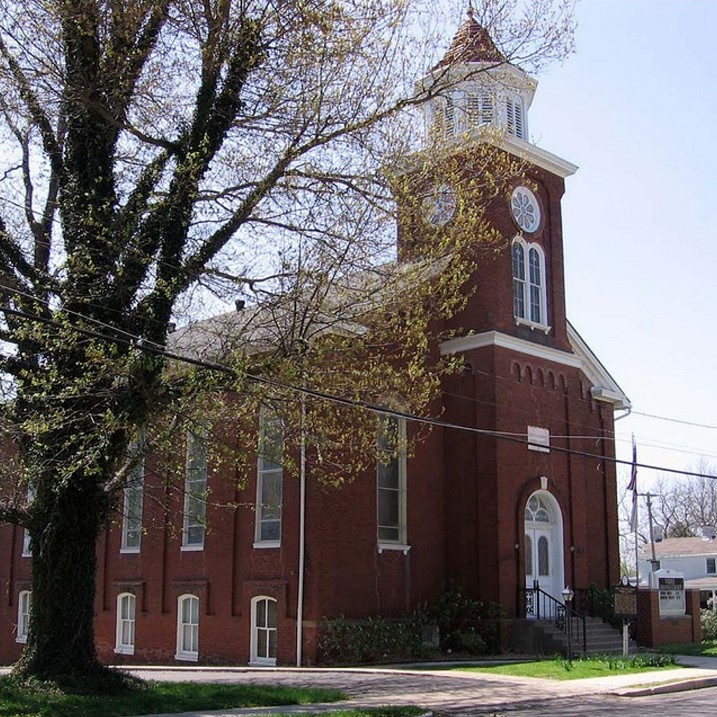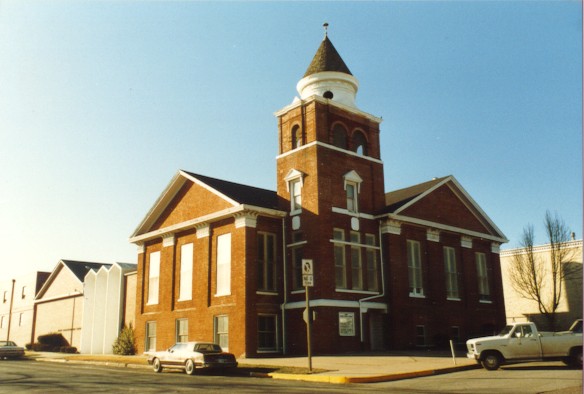|
|
History of Our Church
|
In 2009, the First Christian and First Presbyterian Churches of Lexington began meeting together with the goal of becoming one congregation. After many hours of planning and negotiating, the two churches were able to become one faithful congregation. In 2011, the First Christian Church building was sold, and the congregants became one with the First Presbyterian Church, worshiping together in the building at 914 Franklin Street. The two congregations celebrated their union officially on June 24, 2012 and became the Presbyterian Disciples Church of Lexington.
|
 |
| The First Christian Church of Lexington, Missouri, was organized on April 17, 1836, with 20 members who brought with them their affiliation with the “Reformation Church” of May’s Lick, Kentucky. In 1839, a building committee was formed and a church was built at the corner of 12th and Main (now the Second Baptist Church). The congregation split in 1847, with some members remaining at the Main Street building and others building a church at the corner of 12th and South Street. The members were able to reach an amicable settlement and then moved to construct the church located at 1515 South Street in 1870. The congregation remained at this building until 2009. |
 |
| The church then named “New Providence Presbyterian Church” was organized on May 12, 1839, by order of the Presbytery of Missouri under authority of the Presbyterian Church U.S.A. The first building was located on 21st Street, facing the ‘old town’ square. Membership consisted of two groups, those who transferred membership from eastern churches and Cumberland Presbyterians living on farms south of Lexington. Cumberland member Finis Ewing, who had been appointed Registrar of the Government Land Office under President Jackson in 1832, served as the first minister. The current sanctuary building was established in ‘new town’ in 1844 for $10,000 on a lot donated by James Aull. The pipe organ was added in 1910 and stained glass windows in 1915. In 1968, the fellowship hall, Sunday school rooms, and offices were constructed at a cost of $125,200, completing the church’s facilities as they are today. |
|
|